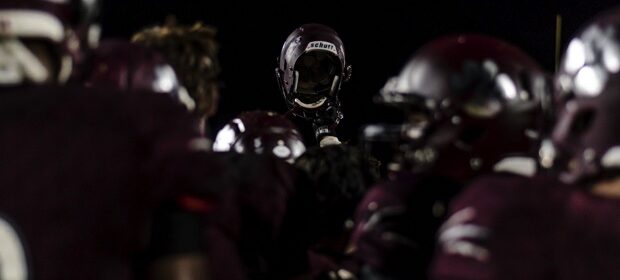For the love of the game?

COOPER CAMP – What was initially meant for exhilaration has turned into degradation. As a source of entertainment and leisure, sports are a massive part of society today. At the same time, they’ve slowly taken a toll on the athletes who play them.
Athletes are seen as heroes. With this image, comes a pressure to appear strong at all times. There’s an innate competitive pressure to not show any forms of weakness, including asking for help when issues arise with mental health. According to a recent NCAA survey, only 10% of young, collegiate athletes seek help for mental health conditions. According to The Georgia Way website, there are currently 552 student-athletes enrolled at the University of Georgia, representing 21 different sports. It is therefore very likely that a significant percentage of UGA student athletes struggle with this.
There’s an inherent stigma already regarding athletes and school. There’s a lingering stereotype that they get ‘free passes’ and ‘handouts’ for being an athlete. However the life of a student athlete is often much more difficult than what meets the eye. Student athletes are faced with the challenges of balancing school, practice schedules and other obligations on a daily basis.
I spoke with a student-athlete who confirmed what these studies are showing regarding sports becoming this double edged sword regarding performance and mental health.
“I love my sport,” they said. “It gives me purpose and fills me with passion. I cannot imagine my life without it. However, it’s caused a lot of harm to my mental state.”
Today, there’s so much pressure from parents, coaches and even fans, regarding collegiate athletics especially, that it becomes overwhelming for athletes.
“A lot of times, your day depends on your performance,” they said. “How your practice went, if you won the game, how well you played. It’s the highest of highs when you do well, but no one really sees the lows when it goes the other way.”
Along with this pressure comes the stress of academics and attempting to maintain balance between school and sport.
“It’s hard,” they explained. “But anyone who signs up to be a student athlete knows that it’s just part of the deal. You just kind of have to deal with it as best you can, and sometimes your best is not enough.”
There are resources available at UGA for student athletes to seek help regarding their mental health. Directors have been hired throughout different athletic programs whose job is primarily to focus on the well-being of athletes. Sports psychologists have also been hired for this reason. These are all steps in the right direction, but the stigma around mental illness still exists.
“We know there are resources to help us,” the student athlete explained. “But it’s still hard to use them sometimes. It feels like weakness, even though it shows strength if anything. Asking for help is hard. Maybe one day we can get rid of the stigma surrounding mental health and sports. But until then, we have to support each other as best we can and just be kind. You never know what someone else is going through.”
Copy Editor: Akshay Nair
Photography Source: Shweta Mistry
